Inventive Window Box Planter Ideas
Make a creative difference with these four design tips

There comes a time when a garden needs a jolt of novelty or a finishing touch to bring it together. One way to do this is to add window boxes to your home. These details fuse indoors and out and make the house and garden whole. I have them adorning the facade of my home, where they add charm to the Cape Cod–style architecture. One of my favorite aspects of gardening beneath the windowsills is that I can see the colorful plants from inside my house. I’ve even gone so far as to tie the colors of the plants into the color schemes of my rooms.
But why stop at the front of your home? Window boxes are also ideal for the side and back of the house as well as deck rails, walls, balustrades, and broad, wide steps. I think “flower boxes” is a more appropriate name for these versatile containers because they aren’t just for windows. I use flower boxes to dress up a solitary window at the back of my house. I also use them on the railings of my deck to add to the color and variety of my other containers without taking up valuable floor space.
Wherever your flower boxes are located, you won’t truly enjoy them unless they look good. The concepts of container design apply here too: a mix of plants that are tall, bulky, or cascading. Here are four strategies to help you get the most from your boxes.
Look beyond the usual suspects
Flower boxes need to pack a punch if they are going to grab attention from the street. Forgo many of the plants normally used in boxes for something more eye-catching. In this box, the elephant’s ear and the begonia immediately grab your interest. The elephant’s ear has huge, exotic leaves, but the begonia has the center spot and bright red blooms. Both plants have enough connecting them (pointed, glossy leaves, for example) so that the composition isn’t disrupted. The foliage of the caladium in the rear of the box strengthens the connection between the two stars by echoing the shape of the elephant’s ear and the color of the begonia’s flowers.
- ‘Polly’ elephant’s ear (Alocasia × amazonica ‘Polly’, USDA Hardiness Zones 10–11)
- Dragon Wing® Pink begonia (Begonia Dragon Wing® Pink, annual)
- Caladium (Caladium cv., tropical)
- Golden creeping Jenny (Lysimachia nummularia ‘Aurea’, Zones 4–8)
- ‘Amethyst’ wishbone flower (Torenia ‘Amethyst’, annual)
A box can turn a railing into a living wall
This flower box hanging from a deck railing is a border unto itself. The height of this composition adds privacy to the deck by screening the adjacent driveway and the neighbor’s house. Two tall, elegant Persian shields do most of the work, surrounding a ‘Haines’ coleus that complements in leaf shape and color. The coleus also adds a bright punch to the container, echoed by the impatiens covering the coleus’s feet. Babywing® begonias and a Diamond Frost® spurge fill in around the legs of the tall plants without overwhelming the container. Sweet Caroline® Purple sweet potato vine cascades from the box, connecting the purple of the Persian shields to the surrounding containers.
- Persian shield (Strobilanthes dyerianus, Zones 9–11)
- ‘Haines’ coleus (Solenostemon scutellarioides ‘Haines’, annual)
- Fusion™ Heat impatiens (Impatiens Fusion™ Heat, annual)
- Babywing® Pink begonia (Begonia Babywing® Pink, annual)
- Diamond Frost® spurge (Euphorbia Diamond Frost®, annual)
- Sweet Caroline® Purple sweet potato vine (Ipomoea batatas Sweet Caroline® Purple, Zone 11)
Repetition with variety is the key to paired boxes
My house has a pair of windows on either side of the front door. When boxes are so close together like this, repetition is crucial for a cohesive design. Making each box an exact duplicate of the other can be boring. To add more visual interest, I instead planted each box to be a mirror image of the other.
Being in such a highly visible spot, these boxes need to work with my house. The orange and yellow leaves of ‘Freckles’ coleus contrast with my plum-colored shutters and add height to the design. The flowers of the Fusion™ Glow impatiens pick up on this theme, too. The chartreuse foliage of the sweet potato vine gives more light to this combination, and its cascading stems, along with the wishbone flower, soften the edge of the box, connecting it to the ground and the house to the garden.
- ‘Freckles’ coleus (Solenostemon scutellarioides ‘Freckles’, annual)
- Fusion™ Glow impatiens (Impatiens Fusion™ Glow, annual)
- Catalina® Blue wishbone flower (Torenia Catalina® Blue, annual)
- Sweet Caroline® Light Green sweet potato vine (Ipomoea batatas Sweet Caroline® Light Green, annual)
A stand-alone box can still stand out in the shade
This predominantly green planting is a study in contrasting leaf shapes and textures. Attached to a lone window that looks from my kitchen out to the deck, it receives no direct sunlight. In the center, an Australian sword fern anchors the planting with its height and mass. The foliage of ‘Lifelime’ coleus contrasts wonderfully with the shape and texture of the fern but complements its color. I periodically trim the coleus to make them bushy and to keep them from overwhelming the fern. A variegated ivy dangles from beneath the fern and coleus, softening and hiding the box in the same manner that a curtain graces a window.
- ‘Kimberly Queen’ Australian sword fern (Nephrolepis obliterata ‘Kimberly Queen’, tropical)
- ‘Lifelime’ coleus (Solenostemon scutellarioides ‘Lifelime’, annual)
- Variegated English ivy (Hedera helix cv., Zones 5–11)
Gary R. Keim is a garden designer based in Lansdowne, Pennsylvania.
Photos: Steve Aitken
Fine Gardening Recommended Products
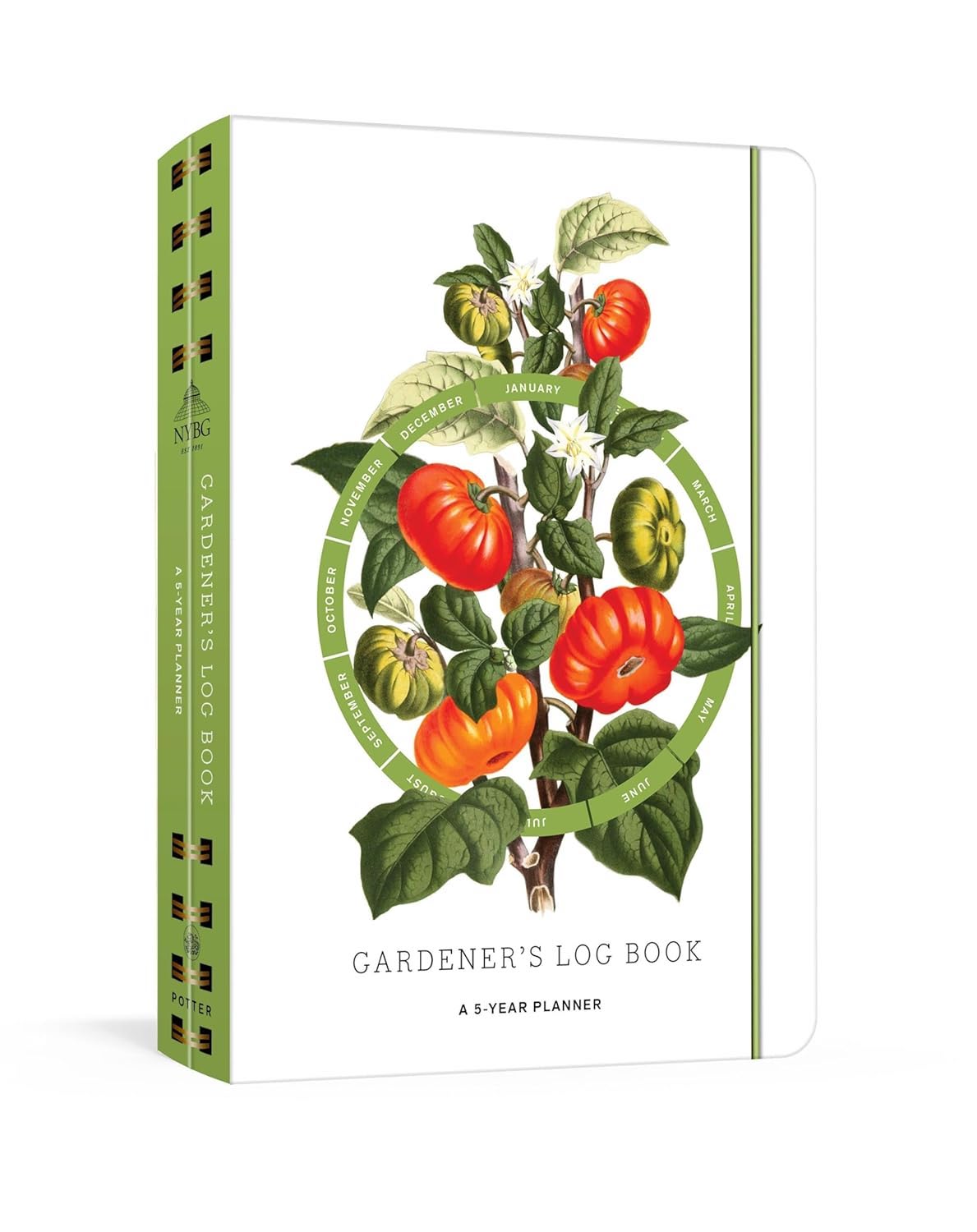
Gardener's Log Book from NYBG
Fine Gardening receives a commission for items purchased through links on this site, including Amazon Associates and other affiliate advertising programs.
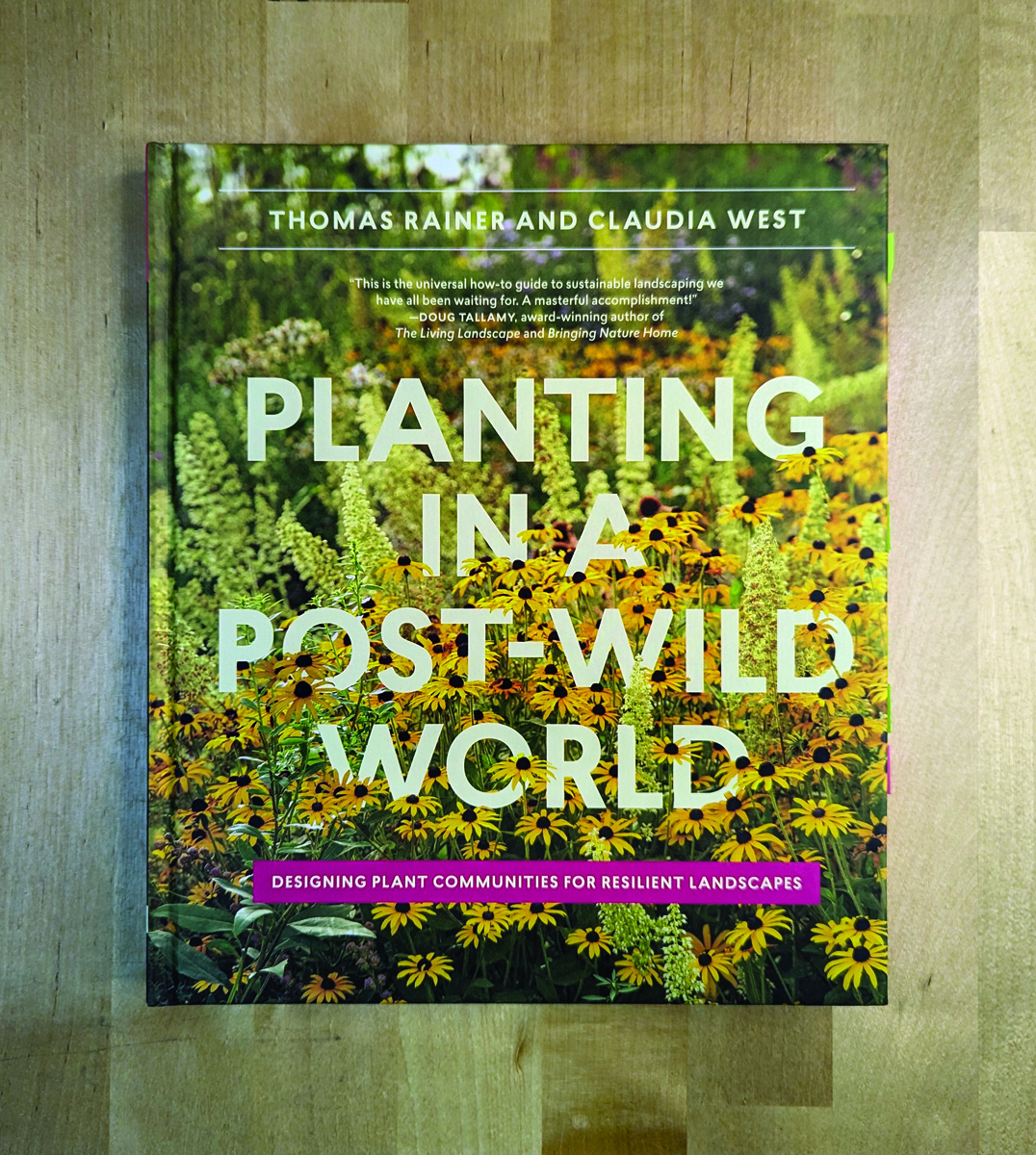
Planting in a Post-Wild World: Designing Plant Communities for Resilient Landscapes
Fine Gardening receives a commission for items purchased through links on this site, including Amazon Associates and other affiliate advertising programs.
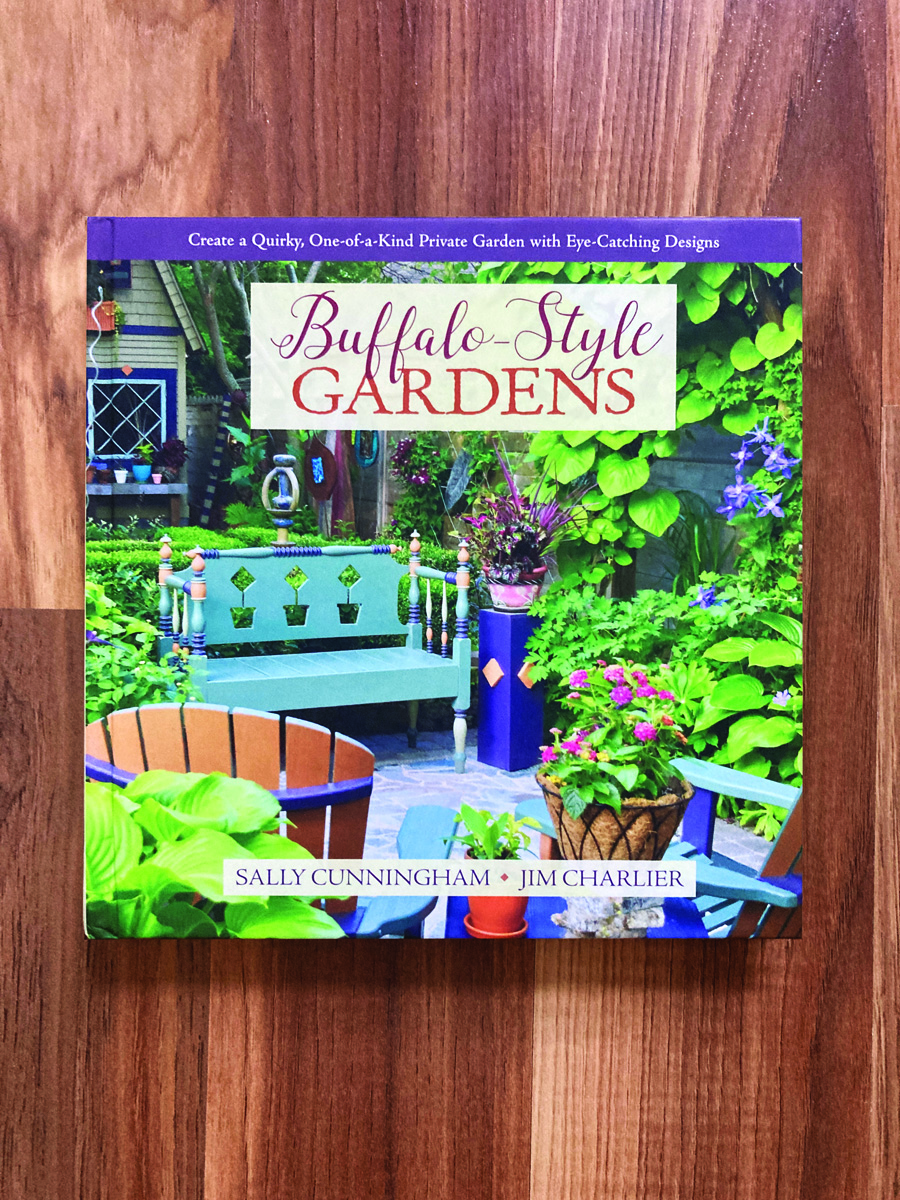
Buffalo-Style Gardens: Create a Quirky, One-of-a-Kind Private Garden with Eye-Catching Designs
Fine Gardening receives a commission for items purchased through links on this site, including Amazon Associates and other affiliate advertising programs.

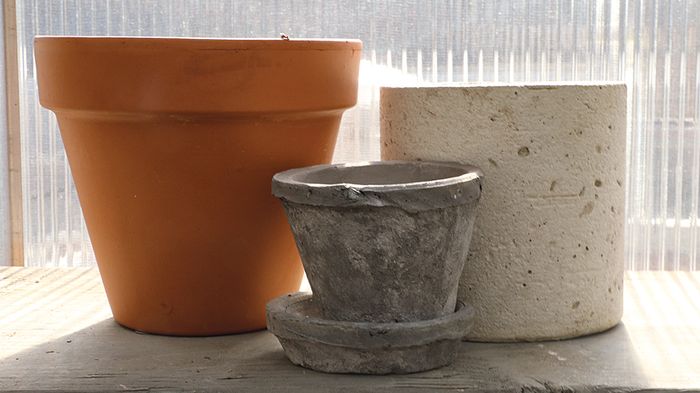



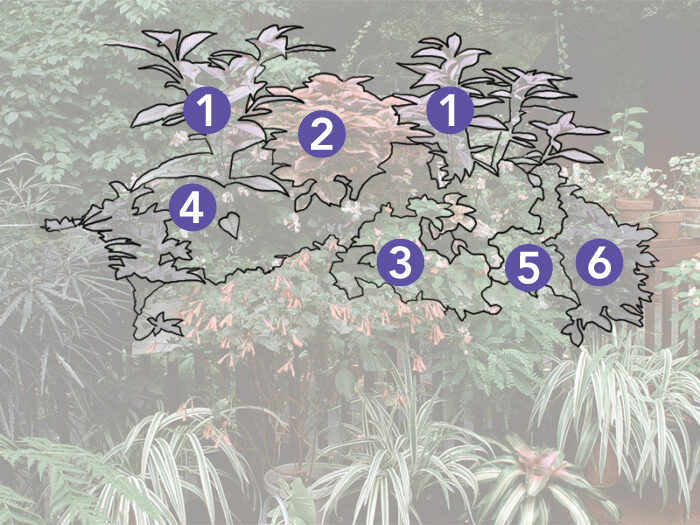
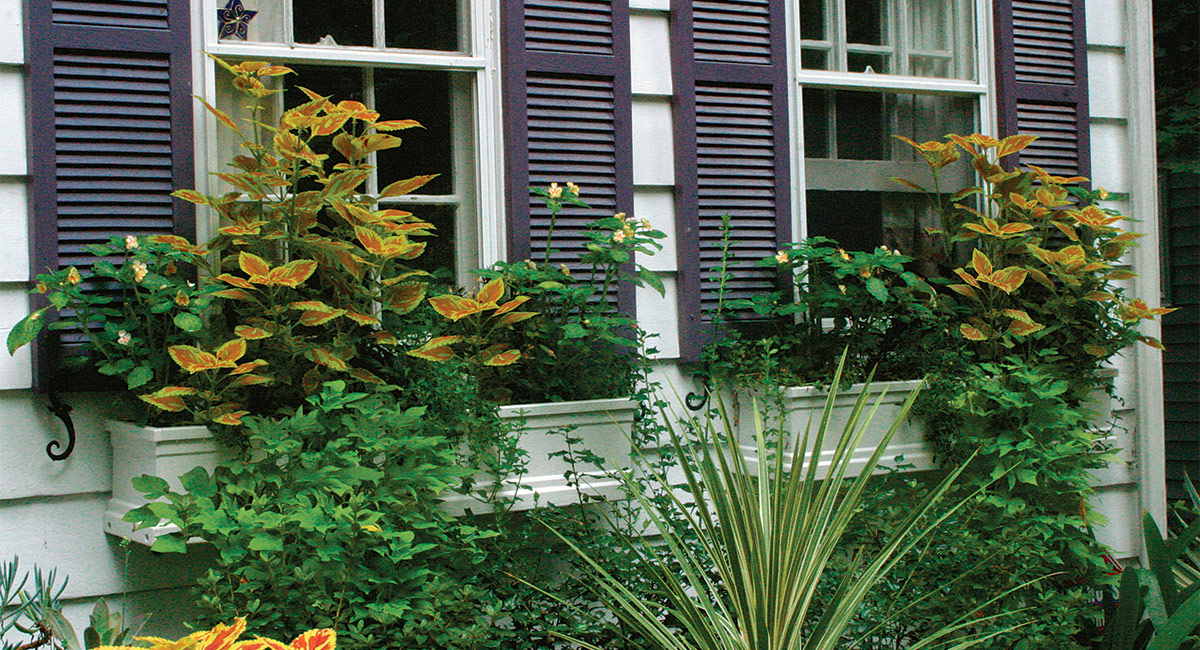


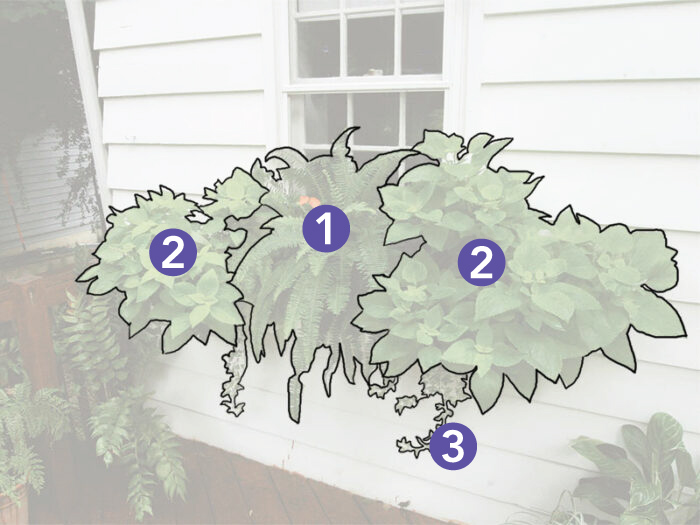




Comments
Hi friends here you learn the how does the work enable cookie click here and get the more very interesting and great updates forever.
Log in or create an account to post a comment.
Sign up Log in